-
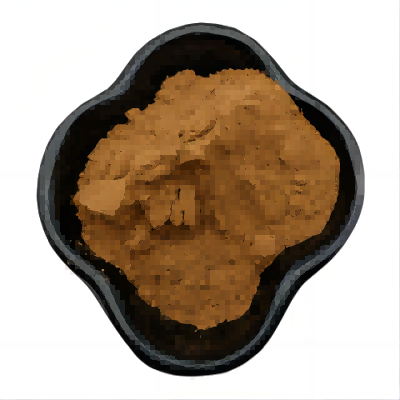
Red Clover Extract CAS:85085-25-2 Manufacturer Supplier
Red clover is a member of the legume family – the same class of plants where we find chickpeas and soybeans. Red clover extracts are used as dietary supplements for their high content of isoflavone compounds – which possess weak estrogenic activity and have been associated with a variety of health benefits during menopause (reduction of hot flashes, promotion of heart health and maintenance of bone density).
-

Gamma Oryzanol CAS:11042-64-1 Manufacturer Supplier
Gamma oryzanol is found in the by-products of the rice industry, such as rice bran and rice bran oil. It exhibits a wide range of biological activities, including anticarcinogenic, anti-inflammatory, antihyperlipidemic, and neuroprotective properties, which are primarily due to its high antioxidant capacity.
-
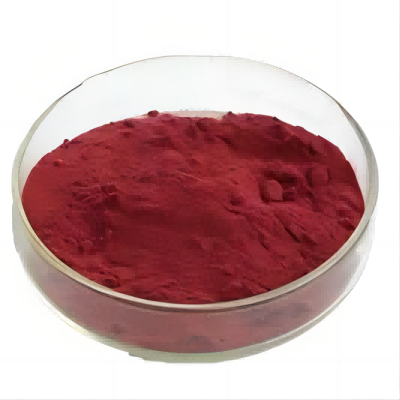
Chromium Picolinate CAS:14639-25-9 Manufacturer Supplier
Chromium picolinate is a supplemental or alternative medication for type 2 diabetes and an anti-diabetic mechanisms of CrPic in insulin-resistant 3T3-L1 adipocytes.chromium Picolinate is a nutritional supplement that is needed in the body but in small amounts. It gives the body the muscle mass that it needs. It also ebbs out the bad fat as it increases muscle mass.
-
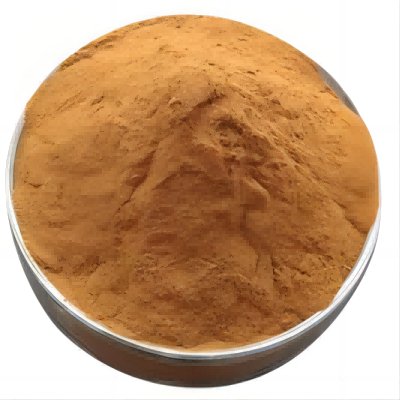
Pomegranate (Ellagic acid) CAS:84961-57-9 Manufacturer Supplier
Pomegranate Extract Ellagic acid has antioxidant, anti-mutagen and anti-cancer properties. Studies have shown the anti-cancer activity on cancer cells of the breast, oesophagus, skin, colon, prostate and pancreas. More specifically, ellagic acid prevents the destruction of P53 gene by cancer cells.
-
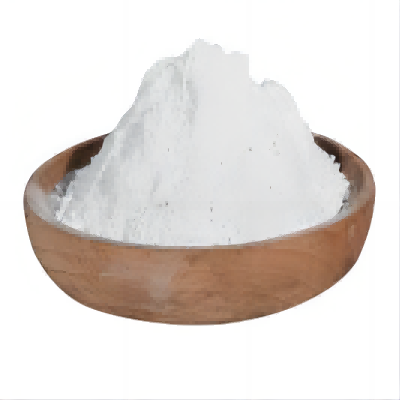
Calcium L-threonate CAS:70753-61-6 Manufacturer Supplier
Calcium threonate is a calcium salt of threnoic acid. It is found in dietary supplements as a source of calcium used in the treatment of calcium deficiency and prevention of osteoporosis. Threonate is an active metabolite of vitamin C that has a mediates a stimulatory action on vitamin C uptake thus may have an effect on osteoblast formation and mineralization process.
-
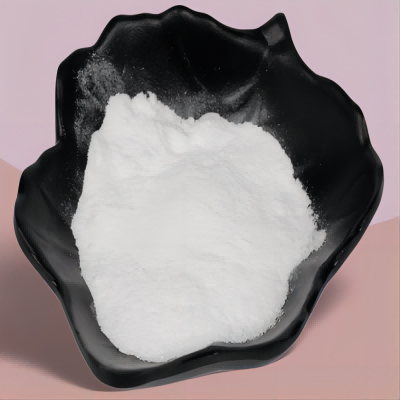
L-Glutathione CAS:27025-41-8 Manufacturer Supplier
Glutathione disulfide is an organic disulfide and a glutathione derivative. It has a role as an Escherichia coli metabolite and a mouse metabolite. It is a conjugate acid of a glutathione disulfide(2-).L-Glutathione oxidized(GSSG) is produced by the oxidation of glutathione. Detoxification of reactive oxygen species is accompanied by production of it. It can be used for the research of sickle cells and erythrocytes.
-
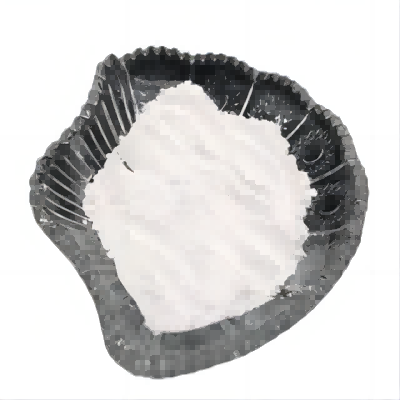
Chlorophyll CAS:1406-65-1 Manufacturer Supplier
Chlorophyll is a colorant that is a green pigment present in all green plants. it is used in sausage casings, oleomargarine, and shortening.Chlorophyll molecules are theprincipal sites of light absorption inthe light-dependent reactions ofphotosynthesis. They are magnesium-containing porphyrins, chemicallyrelated to cytochrome andhaemoglobin.
-
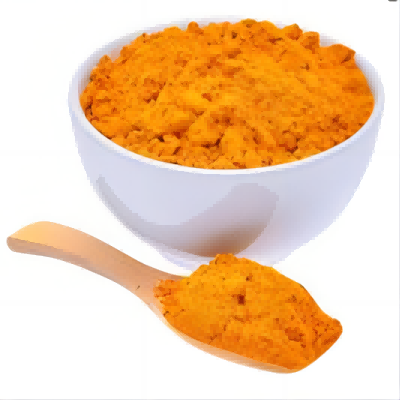
Curcumin 95% CAS:14639-25-9 Manufacturer Supplier
Curcumin, the active component of turmeric (Curcuma longa), has been regarded as an anti-inflammatory and antioxidant agent . Particularly, it can scavenge reactive oxygen species, such as hydroxyl radicals, superoxide anion radicals, and nitrogen dioxide radicals. Additionally, it serves as an anti-inflammatory by down-regulating the production of pro-inflammatory cytokines (e.g., IL-1 and TNF-α) and inhibiting the activation of specific transcription factors (e.g., NF-κB and AP-1). Curcumin also demonstrates antiproliferative properties. Specifically, it inhibits UV radiation-induced skin cancer in SKH-1 hairless mice and reduces UVB-induced matrix metalloproteinase-1/3 expression in human dermal fibroblasts via MAPK-p38/JNK pathway suppression.
-
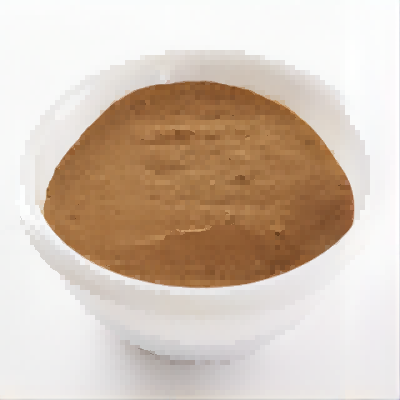
Green Tea Polyphenols CAS:84650-60-2 Manufacturer Supplier
Green tea extract is prepared from natural dried leaves of the tea plant. Black tea is oxidized green tea. Both have been used for thousands of years in Asia as a beverage and medicine. Green tea extract is a bioflavonoid-rich, potent extract, which is used primarily for quenching free radicals. The absolute is prepared by alcoholic extraction of the concrete, or it is sometimes co-distilled from the concrete. The distilled products are viscous, amber-colored liquids with a rich, delicate, sweet, woody, herbaceous odor.
-

Aloe vera CAS:85507-69-3 Manufacturer Supplier
Aloe vera is an herbal remedy promoted as treating a variety of illness.These two herbal remedies act together as a means to cleanse the colon and eliminatetoxins which could accumulate in the digestive tract causing disease; they alsofunction as an anti-inflammatory agent.
-
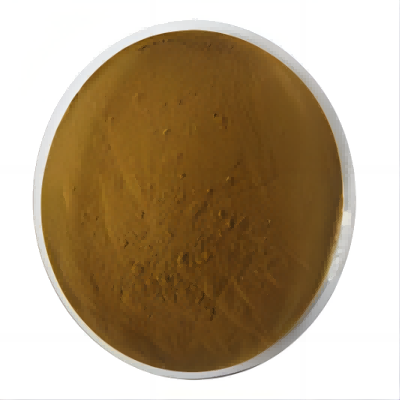
Fenugreek CAS:84625-40-1 Manufacturer Supplier
Fenugreek extract (Trigonellafoenum-graecum) is considered an emollient, anti-inflammatory, and healing ingredient. It can also be used to mask odor or add fragrance to a product. It was traditionally used in treatments for irritated skin. The seeds of this annual herb have been used through the ages and were held in high regard among the egyptians, greeks, and Romans for medicinal and culinary purposes.
-
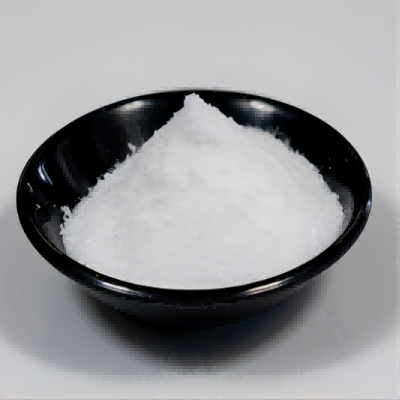
L-Carnitine CAS:541-15-1 Manufacturer Supplier
L-Carnitine is a type of vitamin B, and its structure is similar to that of amino acids. It is mainly used to help transport long-chain fatty acids to provide energy and to prevent fat from collecting in the heart, liver, and skeletal muscles. Carnitine can prevent disordered fat metabolism due to diabetes, fatty liver disease and heart disease, and it can reduce heart damage, lower blood triglyceride, aid in weight loss, and increase the antioxidant effects of vitamin E and C. Meats and giblets are high in carnitine. Artificially synthesized carnitine includes L-carnitine, D-carnitine, and DL-carnitine, and only L-carnitine has physiological activities. On the other hand, D-carnitine and DL-carnitine competitively inhibit the activity of carnitine acetyltransferase (CAT) and carnitine palmitoyltransferase (PTC) to prevent cells’ fat metabolism, thus harming human nutrition.

